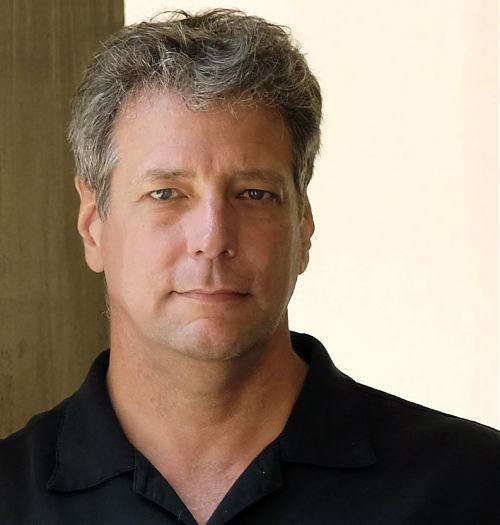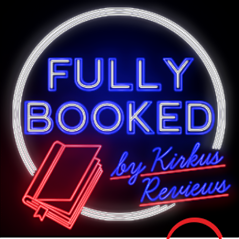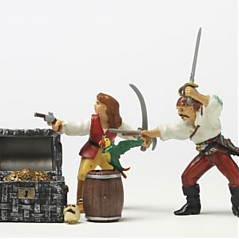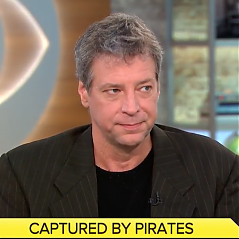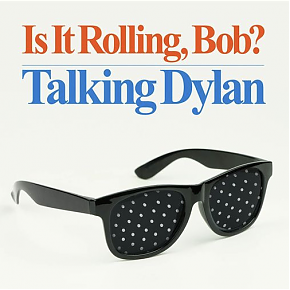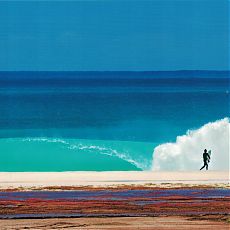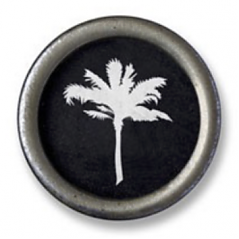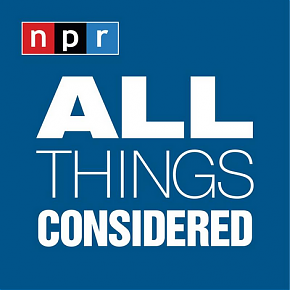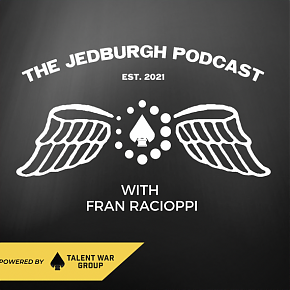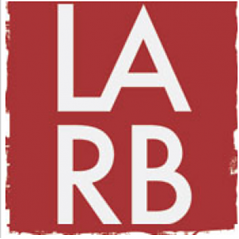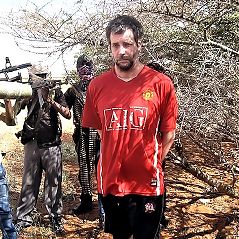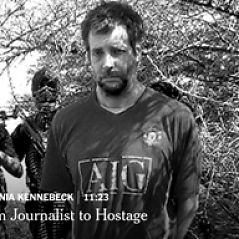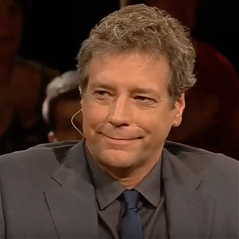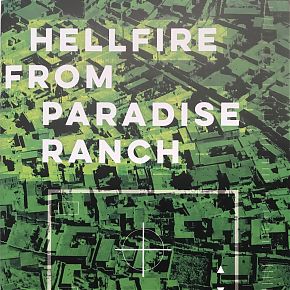The Curse of El Rojo
or, the Rambling Death of a Volkswagen Squareback
Cruel World
(Excerpted from a short-lived magazine in Boston, which our editor co-founded. It received nice letters from Joan Didion and Gore Vidal but hemorrhaged money.)
January 1993
I’d packed the car lightly — a bag of clothes, a bag of cassette tapes, a backpack of books, a few essential tools. With the rear seat flat there was room for a foam mattress, a wool blanket and a sleeping bag, which constituted my portable bed. My car was red and slightly odd-shaped, a station wagon with rounded corners and four round headlights that made it look like a glaring insect. The engine sounded like a lawnmower, even when it was healthy, and the interior smelled like a Volkswagen.
From San Diego I was planning to drive more or less straight to New Orleans. A friend of mine named Theresa, who at the time was still a PhD student at the University of California, San Diego, was going to come with me as far as New Orleans because she had a week free for spring break. Theresa was a sweet-smiling woman with short blond hair, a feisty sense of humor, pale skin, and a nicotine habit. Most of her life had been spent in school (most of mine, too, come to think of it), and she was getting sick of her PhD program.
We stopped for our first tank of gas about two hours east, in El Centro, California. We ate lunch and let the car’s engine cool, because I didn’t want it to overheat in the desert on the very first day. (The Volkswagen started the trip crippled, with a damaged air-cooling system that kept it in constant danger of overheating, and it broke down constantly, like a baby throwing tantrums.) Driving off the freeway I noticed a hitchhiker standing on the opposite onramp, and I asked Theresa if she felt comfortable picking him up after lunch, assuming he was still there. She didn’t mind, so when we went back to the freeway a half-hour later and found him still waiting there — a tall man with a thin combed-back hair, a white walrus mustache, hexagonal sunglasses and a pink Hawaiian shirt — we stopped.
“Oh, thanks a lot,” he said when I got out to help with his luggage. “I’ve been out here almost two hours.” His voice was gravelly and slightly ridiculous. “I had a feeling you guys would stop, you know? I got good karma from looking at your faces.”
We got in the car again and the first thing he said was, “I like to be up front about things, you know; I don’t like to hide anything. So I’ll tell you right off that I’ve been a recovering drug addict for the last five months. My name’s Carl.”
This was good karma? I smiled and introduced myself; Theresa offered him a cigarette. “I’m headed for Key West,” Carl said. “I’m from San Diego, and it just got time to get back on the road, so I’m headed out to the Keys.” We said we could take him at least as far as we got that day, probably somewhere inside Arizona.
Carl called himself “an old longhair,” and told us stories about the sixties. While he was living in New Mexico he and his friends used to run drugs through the local mortuary. The mortuary bought coffins built in Mexico, and Carl and his friends arranged to have the coffins stuffed with Mexican marijuana. The police were innocent enough about drugs back then to make the coffins a consistently safe way to smuggle the pot. Carl said he and his friends also organized a Grateful Dead concert at an amphitheater nearby, and had enough marijuana to place a complimentary joint on every seat before the show, as party favors.
Carl had a kind of Sixties snobbery. Since most of his education came from working and wandering, he would poke holes in Theresa’s schooling by shaking his head when he caught something she didn’t know, muttering, “Twenty years in school.” It seemed a little defensive, as if he wanted to legitimize himself for being so rootless; he was almost twice her age and still drifting. It also seemed a little unfair, since he was, after all, twice her age, and he’d seen more than both of us. For some reason he picked on her about it more than he picked on me, but on the other hand she got a postcard from him a few months later and I got nothing.
The conversation worked around to my car. I told Carl about the cooling problem and said that because of it he hadn’t gotten the quickest ride on the highway.
“I don’t want to push it too hard because it might overheat,” I said.
“Sure,” he said. “You gotta treat her kindly.”
At the next gas station the car stopped running.
Later that day Carl named the car “El Rojo.” Several eventful weeks of car trouble followed, including a broken window and ransacking in Philadelphia.
Through Theresa I knew some students at the University of Pennsylvania who had space for me on their apartment floor. They let me spend the weekend there, in a narrow, hippified drug den on the intersection of 40th and Walnut. They had parties all weekend. I don’t think I noticed until the second or third day that someone had tacked a newspaper clipping to the wall with the headline, “CRIME ROCKETS NEAR 4Oth AND WALNUT.” My car was parked two blocks away, on a dirty and virtually abandoned side street.
While I was in Philadelphia I wanted to see a man who lived outside the city in Glassboro, New Jersey, a professor I’d heard speak in California named Richard Mitchell. His speech was so good I wanted to sit in on one of his classes, and Glassboro State College was where he taught. So one morning I drove out to Glassboro’s small traditional-looking campus and found a seat in one of its drab classrooms.
When Mitchell came in — a thin nebbishy man who looked like God’s own cast of a schoolteacher — he had a cigarette dangling from his lips and he mumbled something about the furniture. His glasses slipped down on his nose. He moved a desk, then collected himself and produced a book, which he waved in the air.
“Lear?” he said, then looked at the class and seemed unable to say anything else. “Lear?”
No one answered.
“We’re reading Lear, in this class?” he finally said, and someone nodded.
“Good.”
He took attendance, making a ritual out of sticking little green stars by the names of the students who were there. Then he started talking about King Lear, but quickly he was off on a tangent. He told us about a comic-book version of Lear with the whole text intact, which he was thinking of using the next time he taught the play. After that he talked about Cliffs Notes, then Benjamin Franklin, and then dogs. He asked what was wrong with Cliffs Notes — weren’t they perfect guides for tests that asked you to regurgitate facts? The speech rambled, but he brought all his digressions together at the end, managing to make the point that the beauty and persuasion of a work of art can’t be summarized. It was also an eloquent way for him to avoid giving away details about a play that most of the class probably hadn’t read.
After class he leaned on his desk and rolled a cigarette while the students shuffled out, and when I went up to talk to him he was already having a conversation with himself.
“Mmm, I need a cigarette,” he said. “An hour is too long to go without nicotine.”
“Do I need it?” he asked himself pedantically. “No, I don’t need it. I’d like it, though.”
Then he turned to me and said, “Did you know God intended us to smoke?”
“Because it’s addictive?”
“What? No, because he gave us tobacco. He wouldn’t have given us tobacco if he hadn’t wanted us to smoke.”
I smiled and he thought about that.
“The best part of a cigarette is the smoke,” he said. “You know, Tao masters used to tell their students, go into the wilderness, build a fire, and watch the smoke. Watch the shapes it makes, see how every shape is random but perfect and beautiful. Watch the smoke, be like the smoke, become the smoke.”
He looked at me.
“That’s why I think people who smoke in the dark are perverted,” he said, and I laughed.
“What can I do for you, young man?”
We talked for half an hour. Mitchell gave witty, vibrant conversation. It occurred to me that he had learned to live like smoke: He could ramble without getting lost. His style of teaching and speaking was not random but actually free. He was freer than Carl, who for all his experience and lack of education still just drifted, obeying some definition of freedom that by 1991 could not be found on the road.
Michael Scott Moore
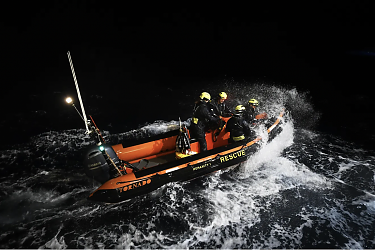
Rafts of the Medusa
Why every day on the Mediterranean is a new scandal for Europe. For both Foreign Policy and Die Zeit.
California’s Attempt at Land Reparations
How land seized from a Black family 100 years ago may be returned. The Bruce’s Beach story from a hometown angle, for The New Yorker
Day of the Oprichnik, 16 Years Later
The novelist Sorokin, the president Putin, his man Dugin, and the war in Ukraine. For n + 1.
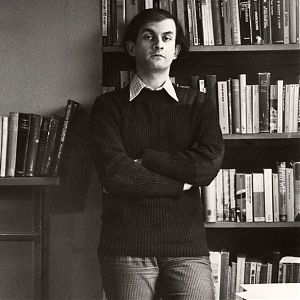
The Rushdie Narrative
Knife and the crumbling ground beneath free speech
There Must Be Some Way Out of Here
An essay on Bob Dylan, “All Along the Watchtower,” and Somali pirate captivity.
That Mystic Shit
The life of Lou Reed in two biographies
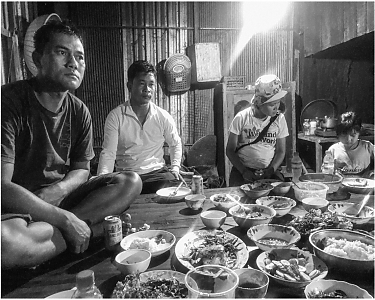
Cambodian Seafarers Talk About Pirates
Mike visits Cambodia for The New Yorker to talk about a harrowing shared experience in Somalia
The Muslim Burial
Cambodian hostages remember digging a grave for one of their own. A sequel chapter to The Desert and the Sea
The Real Pirates of the Caribbean
Adventure journalism in Southern California. A travel essay for The Paris Review.

Antifa Dust
An essay on anti-fascism in Europe and the U.S., for the Los Angeles Review of Books
Was Hitler a Man of the Left?
A book that helped Republicans in America lose their damn minds.
Ghosts of Dresden
The Allied firebombing of Dresden in 1945 destroyed the baroque center of what Pfc. Kurt Vonnegut called, in a letter home from Germany, “possibly the world’s most beautiful city.”
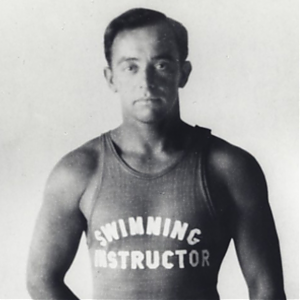
George Freeth, Biographed
The first academic treatment of America’s surf pioneer. Also, was Freeth gay?
It’s Called Soccer
Americans live on what amounts to an enormous island, defended on two shores by the sea, and we’ve evolved a few marsupial traditions that nobody else understands.
Tilting at Turbines (in the Severn River)
The morning was clear and cold, with frost on the church steeple and the cemetery grass. I had a quick English breakfast at a white-cloth table, in my wetsuit, and drove to Newnham, a village on the Severn River in Gloucestershire, parking near the White Hart Inn.
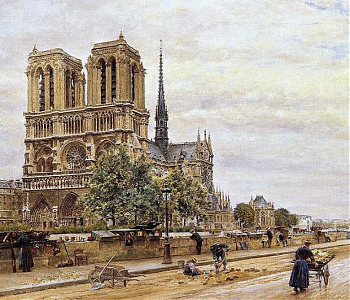
The Curse of El Rojo
I’d packed the car lightly — a bag of clothes, a bag of cassette tapes, a backpack of books, a few essential tools.









